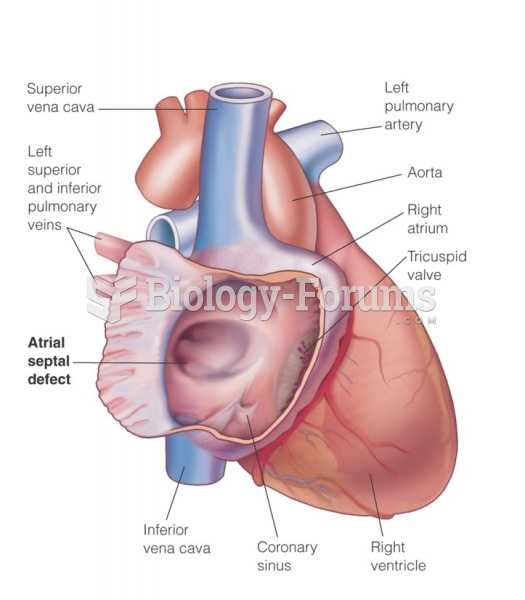|
|
|
In 2010, opiate painkllers, such as morphine, OxyContin®, and Vicodin®, were tied to almost 60% of drug overdose deaths.
Symptoms of kidney problems include a loss of appetite, back pain (which may be sudden and intense), chills, abdominal pain, fluid retention, nausea, the urge to urinate, vomiting, and fever.
Studies show that systolic blood pressure can be significantly lowered by taking statins. In fact, the higher the patient's baseline blood pressure, the greater the effect of statins on his or her blood pressure.
A recent study has found that following a diet rich in berries may slow down the aging process of the brain. This diet apparently helps to keep dopamine levels much higher than are seen in normal individuals who do not eat berries as a regular part of their diet as they enter their later years.
There are 20 feet of blood vessels in each square inch of human skin.
 Establishing a caring and trusting relationship helps the client come to terms with a terminal illne
Establishing a caring and trusting relationship helps the client come to terms with a terminal illne
 C, A nurse can also administer the medication by setting the dose and rate with an electronic infusi
C, A nurse can also administer the medication by setting the dose and rate with an electronic infusi





